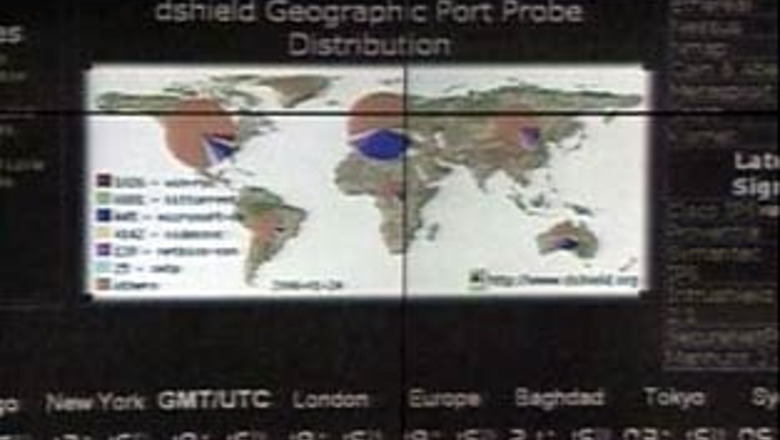
views
Arlington (Virginia): A powerful Internet attack that overwhelmed computers at US and South Korean government agencies for days was even broader than initially realised: targets included the White House, the Pentagon and the New York Stock Exchange and other official websites in the most widespread cyber offensive of recent years.
Other targets of the attack included the National Security Agency, Homeland Security Department, State Department, the Nasdaq stock market and The Washington Post newspaper, according to an early analysis of the malicious software used in the attacks.
Speaking at a news conference in Washington on Wednesday, the US Chairman of the Joint Chiefs of Staff, Admiral Mike Mullen, said cyber attacks were an area of "growing concern."
US authorities on Wednesday said they were eyeing North Korea as the origin of the cyber attack but warned it would be difficult to quickly identify the attackers.
Internet addresses have been traced to North Korea, three officials said, but they added that that did not suggest the attack involved the Pyongyang government.
The officials spoke on condition of anonymity because of the sensitivity of the matter.
The Internet attack, which stretched on for days beginning over the July 4 holiday weekend, targeted dozens of government and private sites and underscored how unevenly prepared the US government is to block such assaults.
The outages were caused by so-called denial of service attacks in which floods of computers all try to connect to a single site at the same time, overwhelming the server that handles the traffic, the Korea Information Security Agency said.
In South Korea, 12 sites were initially attacked on Tuesday, followed by attacks on Wednesday on 10 others, including those of government offices, banks, vaccine firms and Web portals, agency official Shin Hwa-su said.
The targets were all sites that could be accessed by the public, including the presidential Blue House, the Defense Ministry and some banks.
The US targets included the White House, Pentagon, State Department, Treasury Department, Homeland Security and National Security Agency, as well as the New York Stock Exchange, Nasdaq stock market and The Washington Post.
New York Stock Exchange spokesman Ray Pellecchia could not confirm the attack on the trading institution, saying the company does not comment on security issues.
The Associated Press obtained the target list from security experts analysing the attacks.
AP Technology Reporter Ted Bridis said the attack was "unusual in as much as it was so remarkably successful."
"Normally even the most powerful denial-of-service attacks is mitigated after a few hours, certainly within a day. This one went on for several days and it hit some pretty marquee organisations, like some big government agencies."
Many of the US government targets appear to have successfully blunted the sustained computer assaults.
But others, such as the Treasury Department, were knocked off-line at times.
Two government officials acknowledged that Treasury's site was brought down, and said the agency had been working with its Internet service provider to resolve the problem.
State Department spokesman Ian C Kelly told reporters that the department's state.gov Web site has been under attack since July 5 and it was continuing, although much reduced in volume.
The cyber attack did not appear, at least at the outset, to target internal or classified files or systems, but instead aimed at agencies' public sites, creating a nuisance both for officials and the Web consumers who use them.
Vice-President of Information Security for TechAmerica, Liesyl Franz, said that the attacks were a cause of concern as they appeared to by "more organised, more orchestrated attacks by organised criminal groups, nation states or other malicious actors who have motivation behind their attacks."
South Korea's National Intelligence Service, the nation's principal spy agency, told a group of South Korean lawmakers on Wednesday it believed that North Korea or North Korean sympathisers in the South were behind the attacks, according to an aide to one of the lawmakers briefed on the information.
The aide spoke on condition of anonymity, citing the sensitivity of the information.
The National Intelligence Service, South Korea's main spy agency, said it couldn't immediately confirm the report.


















Comments
0 comment